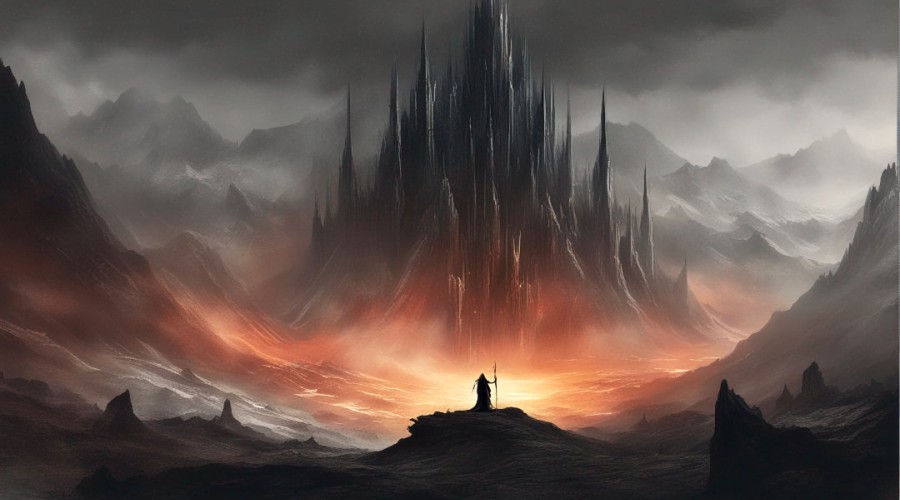
In the rich tapestry of J.R.R. Tolkien’s legendarium, the name Morgoth looms large as a dark and malevolent figure. Known as the original Dark Lord, Morgoth’s war against the Elves and Men stands as a pivotal chapter in the history of Middle-earth. This article delves into the depths of Morgoth’s malevolence, exploring the epic conflict that shaped the destinies of these races and forever altered the course of Tolkien’s mythos.
The Rise of Morgoth
Morgoth, once known as Melkor, was a mighty Ainu and one of the first beings created by Eru Ilúvatar. However, his pride and lust for power led him astray, and he sought dominion over the world. Corrupted by his ambitions, he turned to darkness and became the embodiment of evil in Tolkien’s universe.
As Morgoth’s thirst for power grew, he sowed the seeds of discord among the Elves and Men. In his relentless pursuit of control, he lured some Elves into his service, corrupting them into the malevolent race known as the Orcs. This act marked the beginning of his war against the free peoples of Middle-earth.
Morgoth’s war against the Elves and Men began in earnest during the First Age. He launched brutal attacks against the peaceful Elven kingdoms of Beleriand, seeking to obliterate their flourishing civilizations. The Battle of Sudden Flame and the Fall of Gondolin were among the tragic and heroic events that unfolded as Morgoth’s forces clashed with the Elves.
Morgoth’s malevolence extended beyond the Elves to encompass the race of Men. Manipulating their fears and weaknesses, he subjugated many to his dominion, creating the twisted and dark race of Easterlings who served his dark purpose. However, there were those among Men who resisted Morgoth’s influence, giving rise to heroes like Beren and Túrin who challenged his oppressive reign.
Morgoth’s war left a lasting impact on Middle-earth. Entire lands were reshaped, and kingdoms were cast down in the fiery tumult of battle. The infamous Necklace of the Dwarves and the Silmarils, the prized jewels of Fëanor, became the focal point of Morgoth’s malevolent desires, driving the conflict to its tragic climax.
The war reached its zenith with the War of Wrath, a cataclysmic conflict that marked the united stand of the free peoples of Middle-earth against Morgoth’s forces. The Valar, the god-like beings who resided in the Undying Lands, intervened and unleashed their might to defeat Morgoth and end his reign of terror. The fall of Morgoth saw the reshaping of the world, with the sinking of Beleriand and the eventual fading of his malevolent influence.
Morgoth’s war against the Elves and Men left a scar on the history of Middle-earth, forever shaping the destinies of these races. The heroism and sacrifices made by individuals like Fingolfin, Beren, and Lúthien stand as a testament to the indomitable spirit of the free peoples who resisted Morgoth’s oppression.
Morgoth’s malevolence and his war against the Elves and Men are a dark and gripping tale of power, heroism, and the struggle for freedom. This epic conflict, immortalized in Tolkien’s works, serves as a poignant reminder of the enduring themes of good versus evil, resilience, and the indomitable spirit of those who stand against the forces of darkness.
